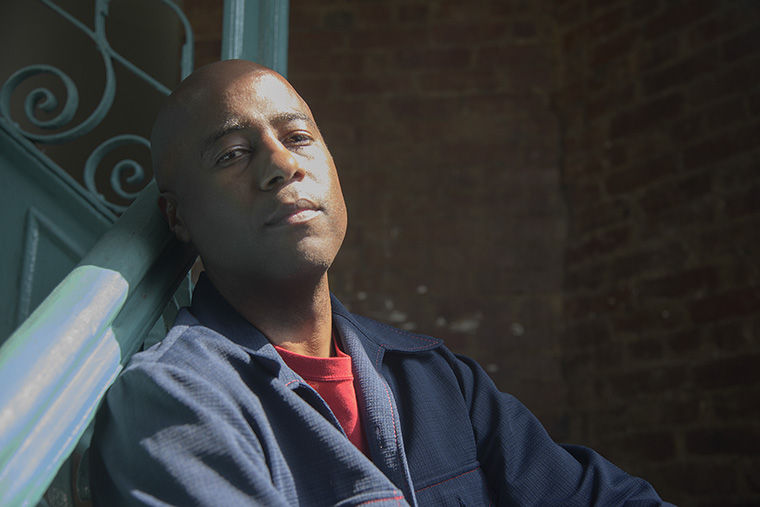‘Unspeakable’ show brings complex life of Richard Pryor to light
James Murray Jackson Jr. co-authored “Unspeakable” and portrays Richard Pryor in the show.
October 12, 2015
“Unspeakable,” an inside look at the life of comedian and social critic Richard Pryor, premiered in Chicago Oct. 6 at the Broadway Playhouse at Water Tower Place.
According to James Murray Jackson Jr., co-author of “Unspeakable” and the actor who portrays Pryor, said the idea for the show was sparked from a suggestion in an acting workshop in his younger days, when the instructor suggested he resembled a young Richard Pryor.
“I was studying at a place called Black Nexxus in New York … and she had a class called ‘Developing Your Own Method,’ and in that class you had to choose a celebrity,” Jackson said. “[The assignment] was just me as an actor dealing with Richard Pryor as a character.”
Jackson said the instructor challenged him to write a play about Pryor, and he reached out to writer and director Rod Gailes OBC, who helped him write “Unspeakable.”
“He said yes, and he knew the title,” Jackson said. “He said ‘This is the title, and this is the concept’…. That’s how it really began. We came from a very pure place.”
Jackson said the show is not meant to be chronological but documents a specific part of Pryor’s life, while touching on others.
“It’s a fantasia,” Jackson said. “It’s not a linear look at his life…. It’s focused on a period of his life from ‘67 to ‘82, but we actually deal with Richard before he was born, in his childhood, and we deal with the chunk of his creative life that everyone knows.”
Jackson added that the show essentially takes place in Pryor’s mind as he goes through stages of his life, including his turbulent and violent upbringing, drug addiction and multiple sclerosis.
Scott Saul, author of the highly regarded biography “Becoming Richard Pryor,” and a professor of English at the University of California-Berkeley, said Pryor should not be reduced to just his vulgar and racy material. Though some of Pryor’s material dealt with race, sex and his tumultuous upbringing, he used many styles of comedy to become what Saul called “the consensus greatest American comic.”
“Jerry Seinfeld called Pryor the ‘Picasso of our profession,’ and I think that’s a useful analogy,” Saul said. “The thing about Picasso is he had many styles…. You should not ever reduce Pryor to one thing. He is so multiple-minded and had so many different ways of performing.”
Ric Walker, a lecturer in the Theatre Department’s Comedy Writing and Performing concentration, added that Pryor and Bill Cosby were among the first superstars of comedy, clearing the way for other comics to obtain major mainstream success.
“I feel like they were the first ones to play stadium events,” Walker said. “They were really big.”
Saul added Pryor blazed a trail for others, who include their life experiences into their routines.
“He is the person who more than any other said all of my intimate psychic life that other people would be ashamed of, feelings I have that are really hard to own up to, I’m going to plunge those into my comedy,” Saul said. “How do you make comedy of watching your mother work as a prostitute? Often it played with the line between what’s comedy and what’s not.”
Walker said some of Pryor’s material is dated, but there are themes in his comedy that are relevant today, such as police brutality and racism.
“There’s a routine I watched after Ferguson, where he talks about how white cops like to beat up black men,” Walker said.
Saul said the use of an “in the mind” style is an interesting concept for a show about Pryor. His comedy, according to Saul, in addition to being about a personal life riddled with multiple marriages and drug addiction, was also used as an escape, as he created characters who were often different than himself.
“He had an incredibly capacious imagination and could take on all different kinds of characters that were not about himself,” Saul said.
“Unspeakable” runs through Nov. 8 at the Broadway Playhouse at Water Tower Place, 175 E. Chestnut St. Tickets range from $36–$76.








